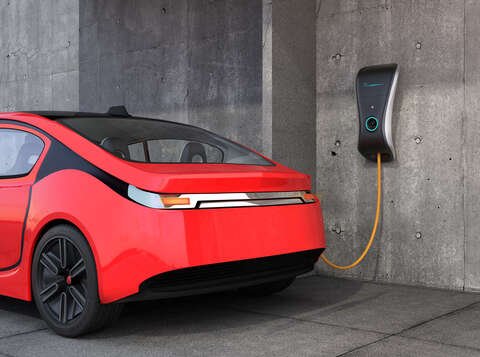The Infrastructure Investment and Jobs Act sent demand soaring for zero-emission transit buses. Since the legislation flooded the market with $20 billion in grants for electric buses in 2022, orders for such vehicles jumped 66 percent of the previous year. However, traditional electric buses usually necessitate significant charging infrastructure upgrades that themselves are expensive. That’s why the prospect of wireless charging buses has so much allure—all the green without the significant grid planning/spending problems. Now, Seattle is set to find out if wireless charging buses are all industry commentators imagined them to be.
According to this report at Smart Cities Dive, Sound Transit has placed an order for 48 such electric buses, including 33 double deckers. Although Martha’s Vineyard and Indianapolis already run buses using InductEV’s wireless charging tech, Seattle will be the city to deploy the company’s double decker bus. The buses from the latest order, including the double deckers, are expected to hit the roads in 2026 and will serve a route along Interstate 405 that connect areas around lake Washington to the metro area’s light rail system.
Here are some other details reported in the article:
“The electric buses will rely on 13 300-kilowatt in-ground inductive chargers. Wireless charging is over 20% more cost-efficient than wired charging and 30% to 50% more cost-efficient than diesel, Dealy said.”
The grid planning and cost benefit of wireless charging vehicles will get the most attention, and rightfully so. But I’m also excited about the security benefits of wireless charging. Over the past two years, a number of cyber security breaches via ev charging stations have worried me that A) bad actors could take advantage of security oversights in charging stations to do real harm, and B) that negative press could hamstring the electric transportation revolution.
A couple cases stand out. First there was this article in Grist last summer that used real prank hacks of ev stations to predict more sinister acts in the future. The article quotes a Sandia Labs researcher whose done research on the potential security issues related to EVs and supporting infrastructure:
“They found everything from the possibility of hackers being able to track users to vulnerabilities that “may expose home and corporate [Wi-Fi] networks to a breach.” Another study, led by Concordia University and published last year in the journal Computers & Security, highlighted more than a dozen classes of “severe vulnerabilities,” including the ability to turn chargers on and off remotely as well as deploy malware.”
Later that summer, a more substantial piece of the same tone was published in the Wall Street Journal. Here are some excerpts:
“In the worst of cases, hackers could engineer blackouts and do damage to entire electric grids by infiltrating charging stations and networks, officials and security analysts warn.”
‘“If you have hundreds of thousands of chargers, you are a target,” said Harm van den Brink, a cybersecurity specialist at ElaadNL, a research organization in the Netherlands focused on testing EV charging.”
In short, Seattle’s wireless charging experiment is worth keeping an eye on. If successful, many of the biggest knocks of EVs might become mute points. My fingers are crossed.
[ad_2]
Source link




